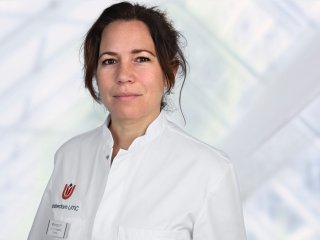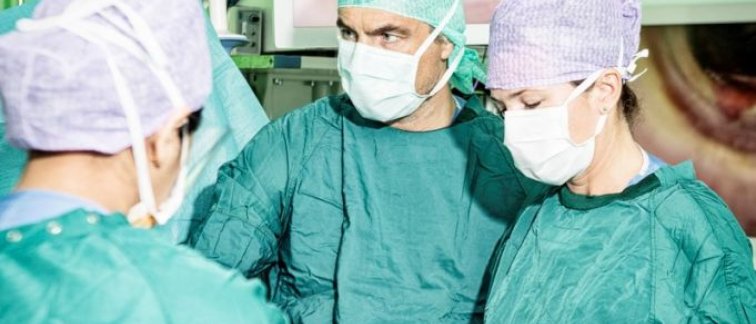The OMEGA trial builds on previous work by the Upper GI Surgery research team, which found that omental metastases are rare and only found in patients with advanced, incurable disease who face poor prognoses. Furthermore, other studies suggest that complete removal of the omentum can increase surgical risks. The procedure is associated with a higher risk of intraoperative complications, which can be particularly concerning during laparoscopic surgery. Patients may also be more vulnerable to intra-abdominal infections, which often have a severe clinical course. With support from the Esophageal and Gastric Cancer Fund (SLMK Fund), the OMEGA trial aims to determine whether omentum removal is truly necessary to improve survival outcomes.
The OMEGA trial will recruit 654 patients from Dutch and other European centers to compare outcomes between patients who undergo traditional omentum removal and those in whom the omentum is preserved. The randomized controlled trial design will allow the study to evaluate whether omentum preservation is non-inferior to complete omentectomy in terms of three-year overall survival rates. Additionally, the trial will assess secondary outcomes, including the rate of perioperative and long-term complications, quality of life, and cost-effectiveness, providing a comprehensive view of the impacts of omentum preservation versus removal.

Read more on the website [dutch]: OMEGA studie (Maagkanker) | Kanker.nl
Read the full publications:
- Role of omentectomy as part of radical surgery for gastric cancer | British Journal of Surgery | Oxford Academic (oup.com)
- Omentectomy as Part of Radical Surgery for Gastric Cancer: 5-Year Follow-Up Results of a Multicenter Prospective Cohort Study | Digestive Surgery | Karger Publishers
- Omentum preservation versus complete omentectomy in gastrectomy for gastric cancer (OMEGA trial): study protocol for a randomized controlled trial | Trials | Full Text (biomedcentral.com)
People involved:
- Dr. S.S. Gisbertz (Amsterdam UMC)
- Prof. Dr. M.I. van Berge Henegouwen (Amsterdam UMC)
- Dr. W.J. Eshuis (Amsterdam UMC)
- Dr. S.L. Meijer (Amsterdam UMC)
- Drs. K. Keywani (Amsterdam UMC)
- Dr. B.I. Lissenberg-Witte (Vrije Universiteit Amsterdam)
- Dr. M.J. van Det (Twente Hospital Group)
- Dr. P. van Duijvendijk (Gelre Hospital)
- Dr. B. van Etten (University Medical Center Groningen)
- Dr. P.P. Grimminger (University Medical Center of the Johannes Gutenberg University)
- Dr. J. Heisterkamp (Elisabeth Tweesteden Hospital)
- Dr. P. van der Sluis (Erasmus Medical Center)
- Dr. M.D.P. Luyer (Catharina Hospital)
- Prof. Dr. S.R. Markar (University of Oxford)
- Dr. J.P.E.N. Pierie (Medical Center Leeuwarden)
- Prof. Dr. F. Roviello (University Hospital)
- Prof. Dr. J.P. Ruurda (University Medical Center Utrecht)
- Dr. J.W. van Sandick (The Netherlands Cancer Institute - Antoni van Leeuwenhoek)
- Dr. M. Sosef (Zuyderland Hospital)
- Dr. B.P.L. Witteman (Rijnstate Hospital)
- Dr. W.O. de Steur (Leiden University Medical Center)
Funders involved
Esophageal and Gastric Cancer Fund (SLMK Fund)

